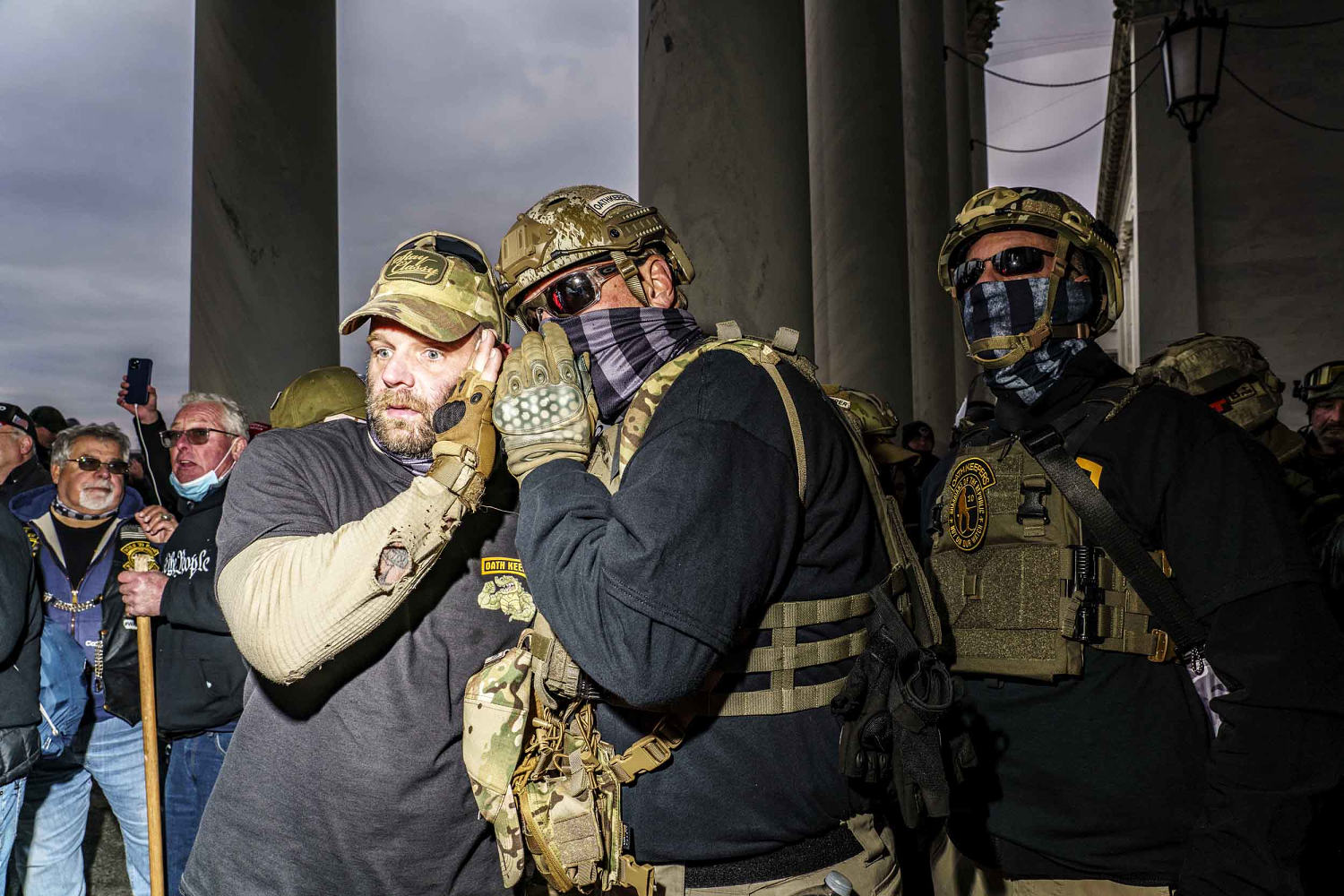
I’ve got great news. Despite its notorious history of racist and anti-government violence carried out by militia groups, we may no longer need to worry about domestic terrorism in Idaho. The Idaho Senate voted Thursday 27-8 to advance a bill that defines “domestic terrorism” as requiring the involvement of foreign groups. According to the bill, if there’s no foreign involvement, then there can be no domestic terrorism.
According to the bill, if there’s no foreign involvement, then there can be no domestic terrorism.
If you think that sounds like it’s opposite the meaning of “domestic,” you’re right. The problem is not only that this contortionist’s view of our domestic threat defies logic, but also that it seems aimed at clouding any perception of fellow Americans as a threat.
Idaho Senate Bill 1220’s statement of purpose explains that it would codify this bizarre definition of domestic terrorism while simultaneously ensuring that no one in Idaho could be called a domestic terrorist, or a terrorist of any kind, unless they’ve been convicted of or pleaded guilty to activities connected to a foreign terrorist group.
Idaho Senate Majority Leader Kelly Anthon, the Republican who sponsored the bill, wraps himself in a “free speech” defense when he explains his proposal to essentially erase the notion of domestic terrorism as we know it. To hear him tell it, terrorists are simply people who speak their minds and hang out with their peers.
“You have the right to say things that people don’t like,” Anthon said. People “have a right to assemble and protest the government for their grievances, even when you don’t like the group. There’s a lot of these groups I don’t like, but they have a constitutional right to do it.”
Of course, Anthon’s idea of free speech has its limits. You apparently don’t have the right to call someone a domestic terrorist. “If you are called a domestic terrorist it is going to affect your name, it’s going to affect your business, it’s going to affect your family,” he said. “And it’s not fair if you’ve never had your due process and you’ve never had your day in court.”
Anthon says his inspiration to erase the idea that there’s domestic terrorism came from Moms for Liberty, an activist outfit that bills itself as a “parental rights group” that he claims was targeted by the government when its members protested at school board meetings during Covid-19 school shutdowns.
Anthon noted the dust-up in 2021 when the National School Boards Association asked President Joe Biden to look into threats and intimidation against school boards. The school boards group claimed such threats might be domestic terrorism, but Attorney General Merrick Garland said, in writing, that federal law enforcement would investigate only criminal behavior. Apparently, Anthon missed that memo.
Is he also forgetting his state’s history? In 1986, in Coeur d’Alene, the domestic terrorist neo-Nazi group Aryan Nations, based in Idaho, bombed the residence of the Rev. Bill Wassmuth, a Catholic priest who led protests against white supremacists.
An Aryan Nations splinter group in Idaho later murdered a Jewish radio host in Denver and bombed a synagogue. In 1992, at Ruby Ridge in Boundary County, Idaho, Randy Weaver — believed to be associated with the Aryan Nations and indirectly linked to a terror group called The Covenant, The Sword, and the Arm of the Lord, and his friend engaged in a deadly shootout with U.S. marshals and the FBI.
At Ruby Ridge in Idaho, Randy Weaver and his friend engaged in a deadly shootout with U.S. marshals and the FBI.
Months after the Coeur d’Alene bombing, in 1987, Idaho passed the Idaho Terrorist Control Act. Anthon’s bill would amend — essentially, neuter — that law. Groups like those named above wouldn’t face the same state penalties for criminal acts they commit if the bill were to become law. They might be charged with and convicted of crimes, but, absent proven foreign connections, they’d no longer be subject to the 10-year minimum penalty Idaho currently reserves for domestic terrorists.
If this bill were to succeed and more states were to follow Idaho’s legislative lunacy, the reality of the threat and risk posed by domestic terrorism wouldn’t vanish. But the threat some Americans pose to other Americans would become yet another thing we couldn’t agree on. It would become a problem that law enforcement and the courts would be constrained from fully addressing.
Taken to its illogical extreme, other crimes could be counted as free speech. How about bank robbery as a free speech expression against the tyranny of global bankers and the grip of usurious interest rates on the common man? Should we ban police from describing an arrestee as a “bank robbery suspect” until they plead guilty or are convicted? If we don’t, the suspect’s feelings and reputation might be damaged. If we use the bill in Idaho as our guide, we’d have to instruct the police to call a fleeing suspect a free speech activist who merely lost his way.
Senators in Idaho, at least the 27 who advanced this bill, have lost their way. They apparently don’t like it when folks who look like them and live near them get called domestic terrorists. So instead of dealing with the threat, they’d rather outlaw a label. Let’s hope the full Legislature puts them back on the path to sanity.
![]()










